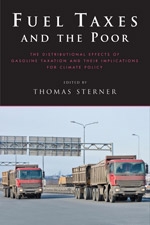FILTER
Displaying 21 - 30 of 30 publications
| Peer Reviewed | Sweden
Improving soil carbon through conservation agriculture in developing countries may generate some private benefits to farmers, as well as sequester carbon emissions, which is a positive externality to…
| EfD Discussion Paper | Sweden, KenyaThis paper uses a bioeconomic modelling approach to show that for some optimal allocation of the mopane forest stock, the restrictive harvest period policy advocated by community leaders may not lead…
| Peer Reviewed | South AfricaMany resource users are not involved in formulating and enforcement of resource management regulations in developing countries and do not generally accept such rules. Enforcement officers who have…
| Peer Reviewed | Sweden, TanzaniaMany resource users are not involved in formulating and enforcement of resource management regulations in developing countries and do not generally accept such rules. Enforcement officers who have…
| EfD Discussion Paper | Sweden, TanzaniaImbrasia Belina also known as the mopane worm, like other edible insects and caterpillars, is a vital source of protein to Southern African countries. The worms live and graze on mopane trees, which…
| Discussion Paper | Sweden, South AfricaFuel Taxes and the Poor challenges the conventional wisdom that gasoline taxation, an important and much-debated instrument of climate policy, has a disproportionately detrimental effect on poor…
| EfD/RFF Book | Central America and Mexico, China, Sweden, Ethiopia, Kenya, South Africa, Tanzania